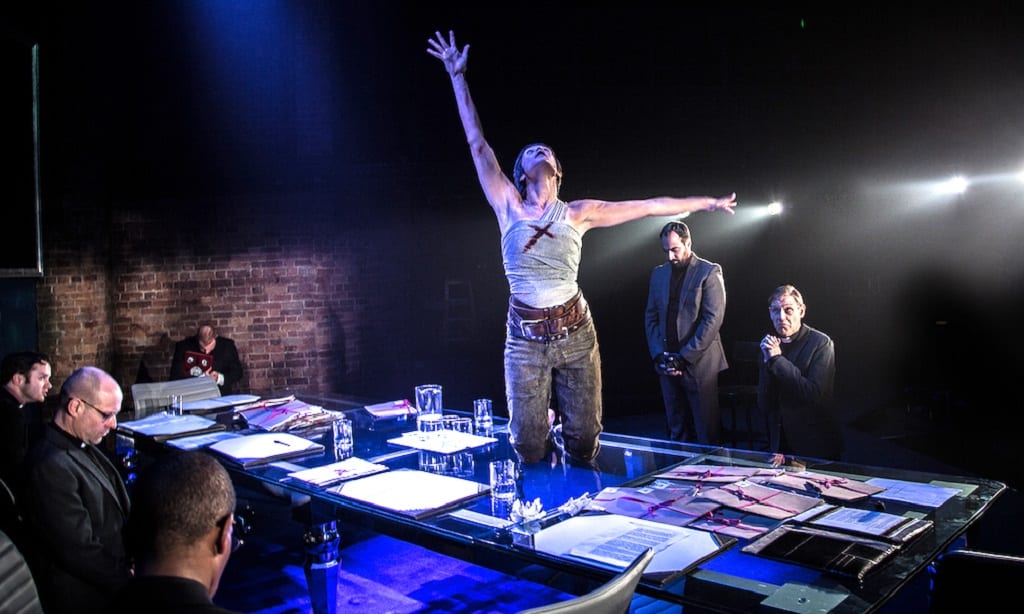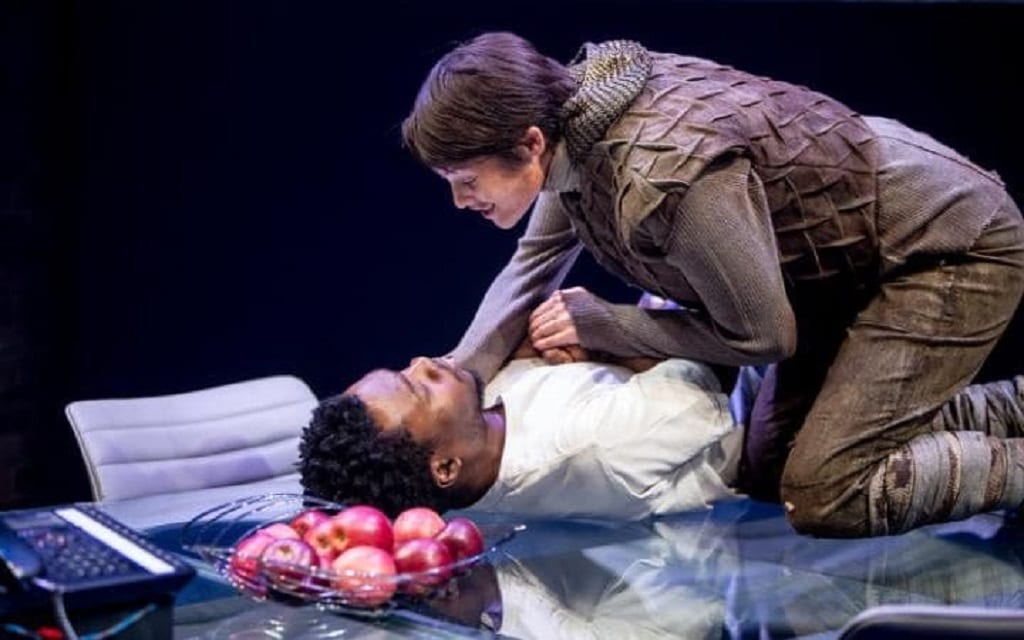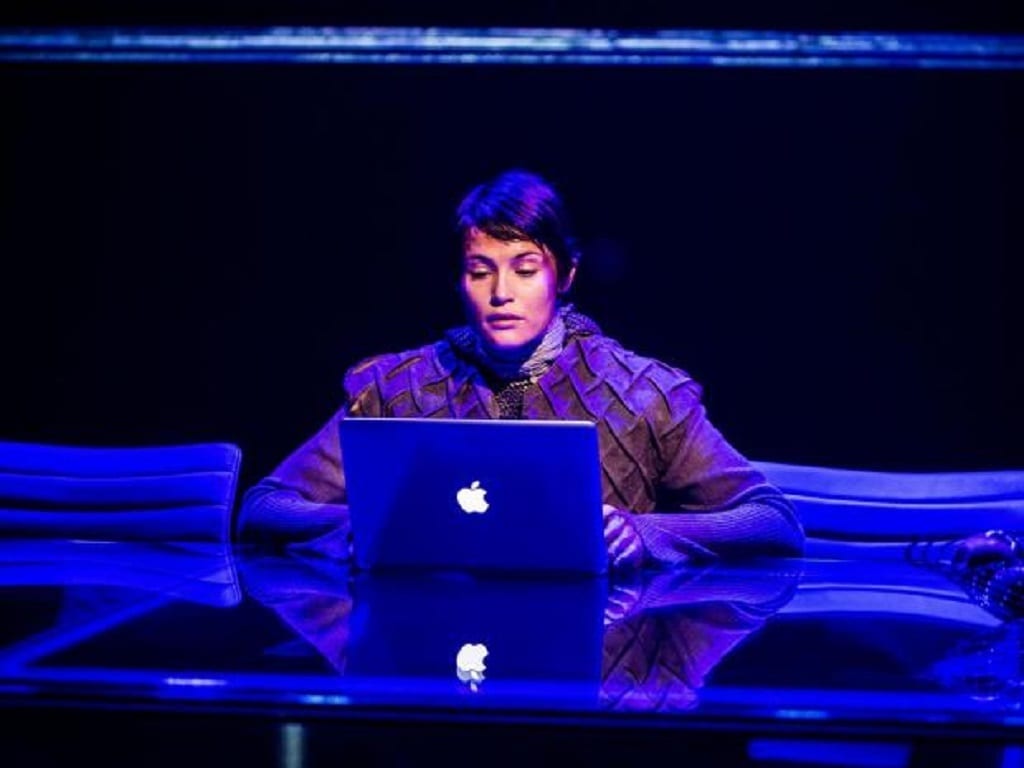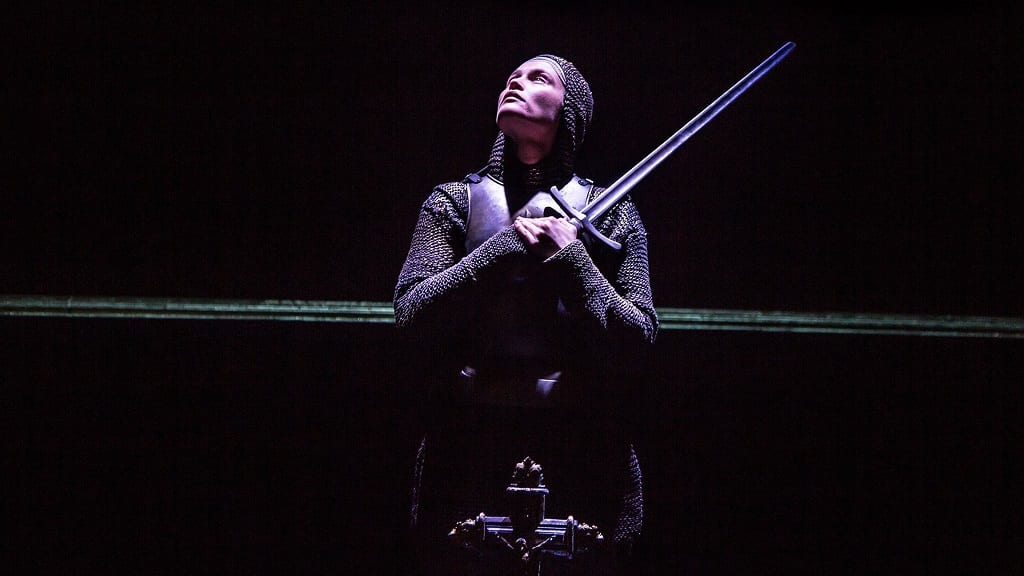Bernard Shaw’s plays, for all their number and reputation, are not often seen in London, so a revival of even his most famous work, St Joan (1924), is still something of an event. The issues at its heart could not be more topical: the capacity of the well intentioned to commit evil, the boundaries of the self-assertion of the individual against the conventions of the community, the nature of motivational leadership and charisma, and the shifting measure of gender-based identities are just a few of the themes that run through this account of how a peasant girl transformed the fortunes of the French in the Hundred Years’ War before falling foul of the snares of court and church politics. For all Shaw’s fame as an expert in inspirational dialectic and bravura wordiness any successful production has to encompass the heart and poetic writing that he allowed to show himself here as well as embrace the comedy, both low and high, which he deploys to leaven the scenes of court conspiracy and court-room conflict.
Josie Rourke’s production unfortunately fails to trust the quality of the material sufficiently and embraces modish gimmickry and tricksy stagecraft that adds little to the intensity of the action. Repeated use of a revolve stage makes the production actually difficult to watch for long sections, when the obvious answer would be to dispense with the long boardroom table that is inhibiting the movement of the actors. Video projections that embed events and locations in modern market movements are distracting rather than informative, and the decision to place all the characters but Joan in modern business dress is a declaration of otherness that hardly needs to be made.
There are strengths too, but they lie more in the performances and in the set-piece moments such as Joan’s repudiation by the court she has assisted into real power, where the plangent energy and intellectual fizz of the writing is allowed to speak for itself. Gemma Arterton’s performance of the title role is almost wholly admirable: there has to be ‘something special’ about Joan right from the start, and she has that distinctive quality in abundance. Her last role in London was as Nell Gwynn, and while on the surface the two parts seem poles apart, in fact there is a lot in common: Joan is not the pallid plaster saint of her later commemoration, but a wily, manipulative charmer who uses a shrewd combination of flattery and cajolery to inspire hope, devotion and a degree of fear. Through a raw, noble, physically supple and inventive performance all these qualities are captured. She is not afraid either to portray her religious devotion to her ‘voices’ that shows up the shallow speciousness of the clerics, and her moments of doubt and despair.
The supporting performances are a mixed bag, some finely detailed and fully engaged, others sketchy and exaggerated, but generally best focused through the cut-and-thrust of the council and court scenes. Fasayo Akinade as the Dauphin captures the prince’s wily laziness and lonely focus on royal self-preservation as well as deceptively infantile charm. Niall Buggy makes an impressively authoritative Archbishop, both fascinated and appalled by Joan, and Hadley Fraser’s Dunois moves plausibly from sceptical soldier, to devoted admirer and finally to ruthless politician, in a way mirroring the audience’s reaction to Joan’s interventions. Elliot Levey does disappointingly little with the key role of Bishop Cauchon, the one of Joan’s inquisitors whose character is explored in the greatest depth by Shaw.
There is a way of making the most of Shaw’s long speeches and verbal duelling that will support even the most arid patches of writing; but this is only intermittently apparent. The cast of the National’s recent production of Granville Barker’s Waste, a similar play and also reviewed on Playstosee, mastered the rhetorical technique, and this production could have learned important lessons from that kind of focus.




